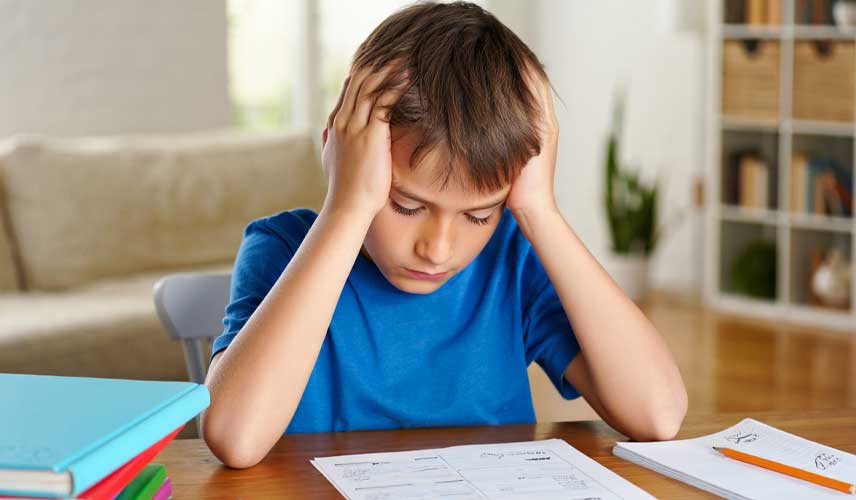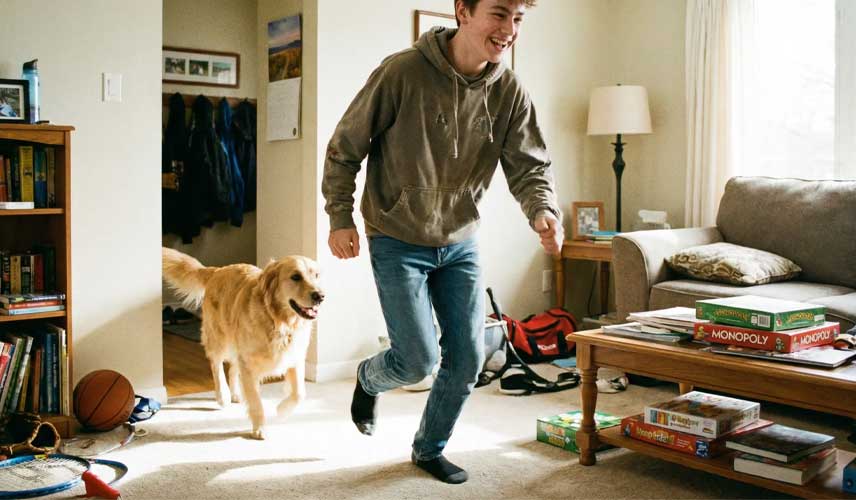
5 Measures to Take for School Anxiety in Children

Did you know that there is such a thing as school phobia in children? If you haven't experienced this, you are lucky because every year, some families of children who are about to start school go through difficult days because of this. It is actually normal for a child who will be away from their family for the first time, will be alone in an environment full of unfamiliar people, and will be away from their room and toys, even if only for a while, to feel a bit excited and anxious. However, for some children, their worries can reach a level of fear. School fear in children can sometimes last for months and can cause serious problems for both the child and their family.
This issue is primarily seen in children who are just starting kindergarten or primary school. Most children aged 3-4 who start preschool are not very aware of what is happening; they feel as if they have been taken out for a walk or to the park. For them, the first week of school passes more calmly than for older children, but they may experience difficulties in the following weeks. Second and third-grade students are already accustomed to school; even if they experience minor issues, it is usually related to having difficulty separating from the joy of vacation.
Some parents stay with their children all day on the first day of school. This is not the right behavior. A child who will start spending part of the day in a corporate environment where they have to follow certain rules is already not very warm to this unfamiliar environment. While it is not easy for them to get used to this situation, having one of their parents constantly by their side makes it even harder. They need a chance to warm up to this environment and trust their teacher, and the way to do this is to leave them alone as much as possible. During this transition period, they certainly need the support of an adult, but in the school environment, this adult should be their teacher. Children who receive adequate support from their teachers are quicker to overcome school fear.
Children who are afraid of school may express physical complaints and try to convince their parents to let them stay home. They may experience issues such as lack of joy, difficulty falling asleep, headaches or stomachaches, nausea, and loss of appetite. It is important not to ignore these complaints, but also to remember that they may be psychological. The complaints of a child whose school attendance is postponed for one or several days may disappear shortly after, even if no treatment is applied.
This problem is naturally more common and can be more severe in children whose parents are overly protective. The incidence is higher in girls compared to boys. It is also more common in children whose social life consists solely of their family until they start school or in children who have lost a family member for some reason or who live only with one parent due to divorce.
A student who goes to school reluctantly and fearfully will also be negatively affected in terms of academic success. Forcing the child too much, making belittling remarks because they are afraid, or showing examples of other children who do not behave this way often does not work and can even worsen the situation. It is necessary to act patiently and consciously to solve this problem. Here are some measures that may help you in this regard:
1. Try to Empathize
Your child is giving an emotional response to a situation that changes their lifestyle and disturbs them, even if you try to prepare them verbally in advance. You should try to understand them. Encourage them to express what they are afraid of and do not belittle their fears. Say things that will comfort them. Inform them about the benefits of going to school. Make your child feel that this is not just their problem, but one that concerns the whole family.
2. Be Firm
Definitely avoid being strict, mocking, or belittling, but make sure they know that you are firm and that not going to school is not an option. If they are going to school in the mornings, do not ask how they feel, as this will give them an opportunity to complain. Prepare alternative plans for situations like waking up late or missing the bus. If they spontaneously return home, send them back to school. If you start giving in to your child who is experiencing school fear, the problem will become even more unmanageable. You must be both calm and firm. Avoid acting angrily and showing how helpless you feel in this situation. If you become depressed, who will solve this problem, right?
3. Inform School Authorities About the Situation and Collaborate With Them
If your child's classroom teacher or guidance counselor is aware of the situation, they can behave accordingly towards your child and guide you on how to act. The collaboration between the family and the teacher and the teacher's style are important for solving this problem.
4. Investigate Their Complaints About School
A child's complaints about their friends, teacher, the position of their desk, or the classwork being boring or difficult may be excuses for not going to school, but they may also be valid concerns. Do not ignore your child's complaints; visit the school, observe, and gather information.
5. If You Feel You Cannot Handle the Problem, Consult an Expert
If you have done your best but still cannot find a way out, do not waste too much time consulting an expert. Fear of school is not a rare problem; it is normal to a certain extent. Many children go through this period. However, if months go by without much change, you may need to seek guidance or psychological counseling services.
Child Development and Education Other Content in the Category

Child Development and Education
Ways to Develop Fine and Gross Motor Skills in Children

Child Development and Education
First Day at Kindergarten: 12 Tips to Ease the Transition

Child Development and Education
6 Tips for Success

Child Development and Education
8 Reasons for Attention Difficulties in Children

Child Development and Education
Problems Related to Homework and Solutions

Child Development and Education
15 Life Skills Your Teen Should Acquire

Child Development and Education
35 Positive Messages Your Child Needs to Hear

Child Development and Education
10 Characteristics of Good Enough Parents

Child Development and Education
Child Development: The First 5 Years

Child Development and Education
7 Things You Need to Do to Raise a Well-Rounded Child

Child Development and Education
14 Effective Methods to Improve Children's School Success

Child Development and Education
8 Tips for Positive Parenting

Child Development and Education
10 Ways to Communicate Well with Children

Child Development and Education
How Does Changing Schools Affect Children?

Child Development and Education
